Because I will never know peace, and apparently the memory of most public commentators is the same length as my cat’s, the bad plague takes are sadly back. This time they come to us via – I swear to god – NBC News Opinion and one Michael Oren who is, as will become clear, emphatically not a medieval historian and could have just not written the garbage that I am about to yell about.
Anyway, the headline is this:

You will be unsuprised to hear that Oren, like all the hacks before him who already did this back in freaking March for the love of all that is holy, has nothing new to say on the subject. What he does is present something extremely basic which I am very much interested in talking about: a timeline of how the Black Death apparently changed the world for the better and from which apparently we can extrapolate a rosy future for ourselves post COVID.
Oren’s timeline is, to put it mildly confusing. It seems to go like this: Black Death > guns > cannons > a collapse of “feudalism” as a result of cannons and guns > the wars of religion and the anti-Jewish masacres due to the myth of Jewish people poisoning wells > the Renaissance > the Enlightenment. I am serious.
This is a lot to unpack, but we’re going to start with attempting to work with Oren’s theoretical timeline. So the Black Death arrives in Europe in the year of our lord 1346, but was already present in central Asia before that. Oren obviously does not care about Asia, so we can start our timeline at 1346. Next up, guns. As a general rule of thumb, most military historians talk about the introduction of guns in Europe happening around the late 1320s. In 1326, for example, we know that the Signorina of Florence ordered that two canones de mettallo be procured for defending the city.[1] So … that would be twenty years before the plague showed up. Cool. Nice causation. OK so cannons are next then. We know that cannons were also in use at the battle of Crecy which was … in 1346.[2] When the plague also arrived. Make sense, Osprey.
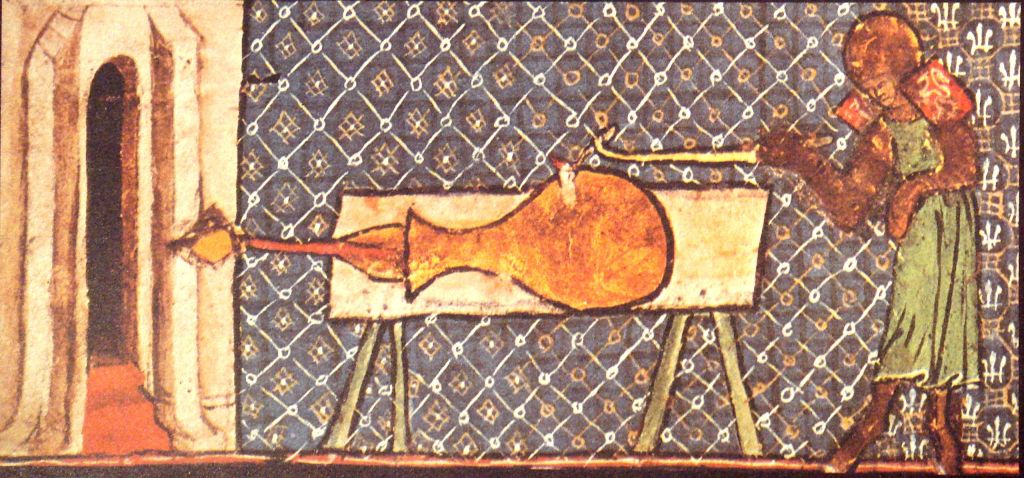
Next up, of course, we have the collapse of feudalism, which Oren appears to think is linked to the peasant revolts. In his words, “But then came the gun that shot feudalism down. Armed with this weapon, which was relatively inexpensive and easy to operate, the simplest farmer could defeat the best-mounted, thickest-coated knight. Many did in the peasant revolts that subsequently erupted. Naturally, the knights retreated to their castles, only to find that they were no longer impregnable, as well. These could now be destroyed by a larger version of the handgonne, also known as a cannon.”
So this is wild as hell, first because the peasant revolts did not lead to a collapse of noble and royal military power. In fact, as I have written about before, there was actually a very violent clampdown on peasants following the rebellions, not some utopia with better treatment for farm workers. Nor do we have much evidence to suggest that either the Peasants Revolt in England or the Jacquerie Rebellion in the French lands revolved around firearms. But go off, king.
More to the point even if we pretend that the peasants’ revolts did make a lasting positive impact on the conditions of the people involved, how do you then square that with the fact that the majority of people continue to live their lives under the on-going threat of state violence? Are you saying that the Black Lives Matters protestors in America no longer need to fear the licit violence of the ruling class because guns meant that knights don’t exist anymore? Explain this one to me, because I fail to see how the move from noble and royal sanctioned violence to state violence helps the poor. Maybe I’m missing something in, you know, my area of expertise that Oren over here is privy to. I have no idea because he just states this like a known know before moving on.
After that confusing little anecdote, we seem to then get to the wars of religion and the plague pogroms, which is what I think Oren is referring to when he writes, “Christians fought Christians, and both sides turned on the Jews, libelously blaming them for spreading the plague and annihilating more than 200 Jewish communities across Europe.”
This little section is all over the place. If we want to talk about the very first wars of religion – the Hussite rebellion and subsequent crusades against the Hussites (which I always do) that kicks off in 1419. To be fair to Oren, firearms were involved there, though arguably the Wagenberg tactics developed by Jan Žižka z Trocnova a Kalicha was more instrumental in the military success of the Hussites. I mean by this time the Holy Roman Imperial crusaders sent against the Hussites also had firearms so … I am not sure how we can say that guns were somehow a great leveler here. Or that feudalism had been defeated being as a whole ass Empire was busy attempting to reassert its dominance over a breakaway kingdom, but hey ho.
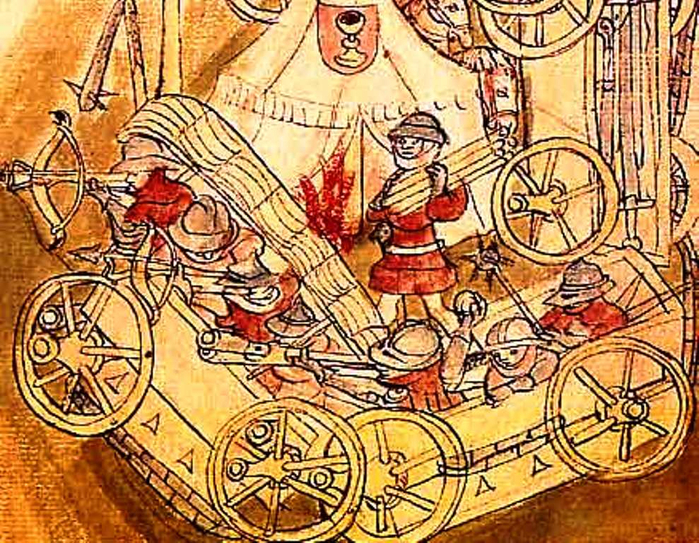
Now to say that Oren is talking about the Hussites here, and not, say the Thirty Years War in 1618 is me being extremely generous, as he hasn’t bothered to define any of his terms. But even with my extreme magnanimity here it makes absolutely no sense to talk about the Hussite wars while also discussing the massive and disgusting Jewish massacres of the fourteenth century.
The first major persecutions of Jewish people as a result of the Black Death took place in 1348 in Toulon, Provence as well as in Barcelona. They then extended out and in 1349 major massacres took place in Basel, Erfurt, Strasbourg, Aragon, Flanders, Speyer, Mainz and Cologne. By 1351 there were massacres up into the Hansa cities on the Baltic Coast.[3] All of these massacres are disgusting, bloody, and completely pointless. They were a hideous loss of life that once again highlighted the terrible plight of Jewish people within medieval Christendom, a history that we should seek to highlight in order to right historic wrongs. They also took place at least 68 years before the Hussite wars. I am not sure what I am supposed to do with this, Oren.
Apparently what Oren thinks happens now is the Renaissance, which makes everything better. If we accept that when Oren was saying that “Christians fought Christians” he was talking about the Hussite wars this timeline sort of works. The Renaissance as a concept is can be said to kick off in the Italian lands during the Peace of Lodi, which took place from 1454-1494. So, this is about twenty years after the Hussite wars end in 1434. Maybe the time works out here, but as I have noted before we need some pretty big citations on exactly why we are supposed to think that getting to the Renaissance makes anything “better” for the majority of people. We actually see life expectancy drop in Italian cities during the Renaissance from what it was in the medieval period. Why is that better?
I mean sure the art is nice, but I am not really sure why we are supposed to like it better than medieval art, or what that has to do with a generalised improvement in quality of life or whatever. The Renaissance is something that happened to rich people, who still had a major stranglehold on Europe. Poor people didn’t really get to participate in it. Nor did the fact that they were being exploited by an expanding merchant class rather than just the nobility make a whole massive difference to their lives, TBH.
And then we come to the Enlightenment. The Enlightenment started in 1715. It is responsible for a lot of stupid takes about the medieval period, including whatever the hell it is that Oren thinks he did here.
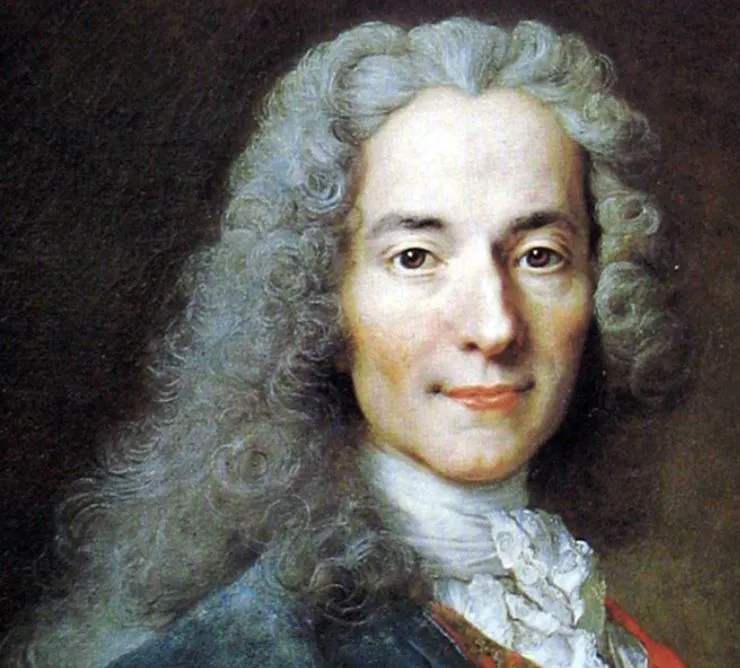
So to sum up here is what Oren’s thinks his timeline looks like:

And here’s what that actually looks like (give or take. This is not easy to visualise.):

So yeah this timeline is absolute nonsense, for sure, as is Oren’s self-satisfied assurance that when we hit the Renaissance and then the Enlightenment everything was fine. But what I am actually interested in here is they way that he has collapsed time in order to come up with a reassuring story to tell himself about the outcomes of pandemics.
The first four things he cites (The Black Death occurring in Europe, as well as guns and cannons and the Jewish massacres) are all things which happen more or less simultaneously. The idea that one of these things leads to another doesn’t make any sense as the timeline squiggles around and doubles back on itself, but all these events can sort of be talked about as a cohort. I fail to see the theoretical causation, more of a correlation, really, but sure, this 25 years makes sense to talk about as a block.
The timeline then starts to get confusing because we are meant to think of the fourth thing as extending into a totally different era – the Jewish Massacres are to be thought of as extending to the Hussite wars. Again, I am being super nice about this and going with the earliest non-Catholic on Catholic violence, but that means we suddenly jump seventy years in the future. Yet somehow Oren is saying that we can think about this as the same time period. I fail to see how that works. By that same logic we could say, for example, that WWII and Covid 19 are happening at the same time. They are not, in case you were wondering.
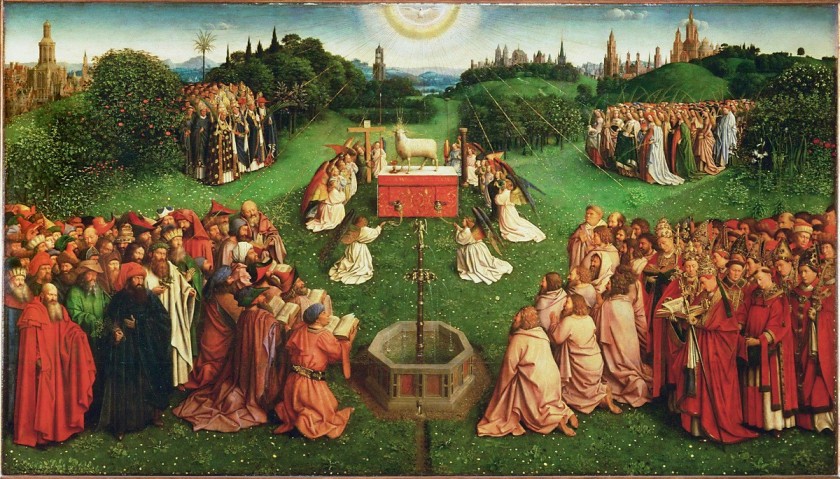
Then, of course, the Renaissance came and made everything better! Let’s say we accept that the Renaissance actually improved life for the average person. (It did not.) The Renaissance begins over a century after the beginning of the outbreak of the Black Death. So, if you are holding your breath for some major improvements as a result of this COVID pandemic, I am afraid I have some terrible news for you about how long you will be waiting.
Oren then speeds up even more to let you know that the Renaissance led to the Enlightenment and then everything was fine. Never mind the fact that some of the greatest genocides ever committed were fed by Enlightenment theories which justified empires and colonialism. Never mind that chattel slavery was ramped up to a fever pitch using Enlightenment values. Never mind that some of the wonderful “science” that Oren is so delighted to see the Enlightenment bring about was stuff like Eugenics. EVERYTHING IS FINE BECAUSE VOLTAIRE SAID SO. Well OK then.
Leaving the idea that intellectual movements solve everything aside, there is also the small fact of the matter that the Enlightenment takes place a full 250 years after the Renaissance. That is almost twice as much elapsed time than from the Black Death to the Renaissance. That is 369 years after the Black Death broke out in Europe. What are we supposed to do, just fast forward through that part? If you want to convince me that the Enlightenment was actually a really great time for everyone and something similar is going to happen after COVID, you need to explain why I should be hyped for a silver lining in 2389. How does that benefit those of us being told to risk our lives and get back to work to save the economy with little to no protection? How is that supposed to make the millions of people at risk of being made homeless imminently feel better? What do you think this has to teach us now?
It is obvious that I think that we can learn a lot from history. The entire purpose of this blog is to highlight the ways that history is still impacting us and to allow us to find ways of improving our world from the lessons of the past. The idea that the world will be improved passively and we simply have to wait for all the death to subside before we are ushered into a new enlightened era, however, is supremely unhelpful. It reeks of survivors’ bias and well, and as this protest sign which I saw at the Tate strikes on Saturday puts it:
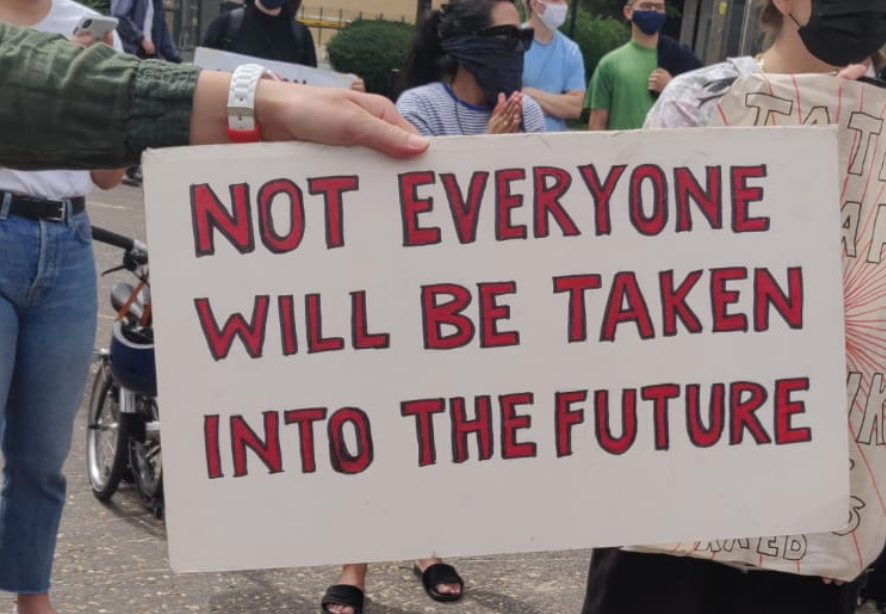
Explain to someone who is about to die of COVID that it’s chill because in 369 years stuff will be better. How is that meaningful?
Moreover, Oren’s article seems to suggest that we need not worry or push back against the terrible things that we see around us now. Life will simply slip along sweetly into an easier future because we are always and forever moving towards improvement. That is not the case. The very rebellions that Oren blithely cites as proof that things improved for the little man were bloody and hard fought, if in vain. Indeed, as we move towards the theoretically bright time of the Enlightenment which he touts here, we approach ever increasing levels of violence and death, with ravages from diseases such as small pox on top of the genocide perpetuated by colonisers. Are we meant to sleepwalk through our own deaths because of that promise?
Historical timelines can be useful for one specific thing: learning the order in which things happen. To say that they did so inevitably and that the line is always moving forward into a better tomorrow is infantile and unhelpful. We are alive now. We have to work to improve our world this minute. Tomorrow is never promised, and it certainly isn’t with a pandemic breathing down our necks. Don’t wait to be carried into a hopefully better world. We need to kick some doors in and secure that ourselves.
[1] Alfred W. Crosby, Throwing Fire: Projectile Technology Through History, (Cambridge: Cambridge University Press, 2002), p. 120.
[2] David Nicolle, Crécy 1346: Triumph of the Longbow. (Oxford: Osprey Publishing, 2000). p. 21.
[3] See Anna Foa, The Jews of Europe After the Black Death, trans. Andrea Grover, (Berkeley: University of California Press, 2000), pp. 13-16
If you enjoyed this, please consider contributing to my patreon. If not, that is chill too!
For more on the Black Death, see:
Plague police roundup, or, I am tired and you people give me no peace
Chatting about plague for HistFest
A Black Death reading list
On individual blame for global crisis
Not every pandemic is the Black Death
On the plague, sex, and rebellion

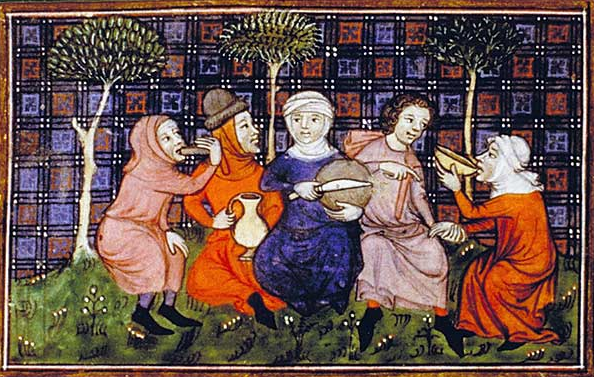
So the market was flooded with cheap firearms and thus feudalism was ended by peasant farmers with guns? This sound like a contemporary American fantasy of how guns work in a society projected way back into European history where it makes even less sense than it does in its normal context.
LikeLiked by 1 person
Yeah it is a really strange view of how power works and also a complete misunderstanding of violence in both the medieval and early modern period. It’s a fiction that seems largely invented to make Americans feel good.
LikeLiked by 1 person
Hi Eleanor! I enjoyed you blog, which I noticed on Twitter. It is, however, disheartening that good people like you must
keep fighting the same battles over and over! You might like an old attempt of mine on a similar subject: ‘Black Death and the Silver Lining: Meaning, Continuity, and Revolutionary Change in Histories of Medieval Plague’ Journal of the History of Biology 24(1991) 265-289. Keep up the good work!! FM Getz
LikeLike
Faye thank you so much for the article! Cannot wait to read it. Also I am a huge fan of your work, so thank you!
LikeLiked by 1 person
This is a great take-down of one of the (imho) most dangerous secular theodicies out there today (see also Steven Pinker’s immensely dumb and dangerous defense of the Enlightenment). Thanks for this.
LikeLiked by 1 person
That has to be the weirdest version of the “Black Death made things better” story I’ve ever seen. Isn’t it supposed to go “plague kills off a third of the workers –> seller’s market for labor –> increased mobility and living standards for the non-elite classes?”
LikeLike